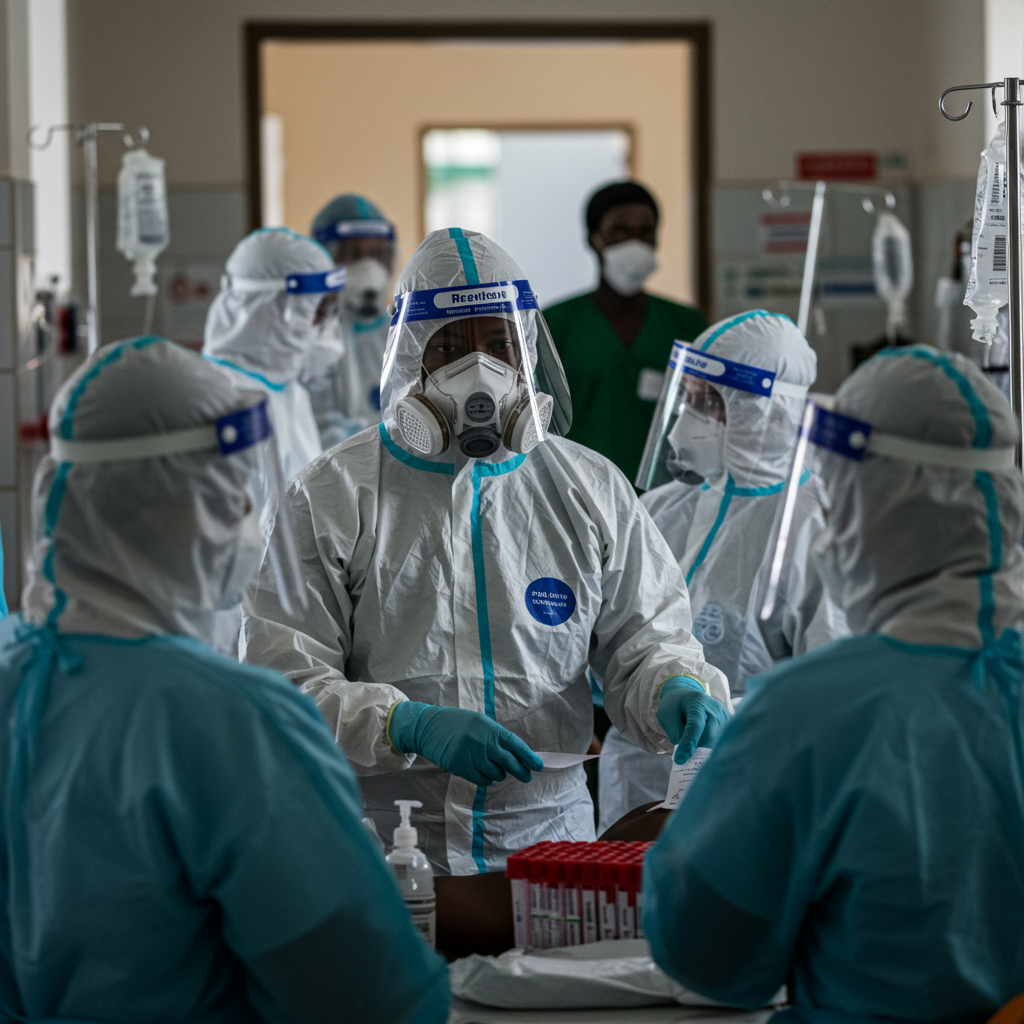The Centers for Disease Control and Prevention’s (CDC) vaccine advisory committee recently held a pivotal meeting, marking the first for the Advisory Committee on Immunization Practices (ACIP) since Health and Human Services (HHS) Secretary Robert F. Kennedy Jr. appointed new members, replacing the entire previous panel.
Among key decisions, the ACIP voted to recommend a new preventive shot for infants against respiratory syncytial virus (RSV) and announced a comprehensive review of the U.S. childhood immunization schedule. The meeting and the panel’s composition have drawn significant attention and debate within the public health community.
New Protection Against RSV for Infants
In a significant move to protect vulnerable infants from severe respiratory illness, the ACIP voted 5-2 to recommend clesrovimab (brand name Enflonsia), a monoclonal antibody developed by Merck. This recommendation applies to infants aged 8 months and younger, specifically those who did not receive protection through a maternal RSV vaccine during pregnancy.
Clesrovimab, which received FDA approval on June 9, 2025, provides passive immunity by mimicking antibodies the body naturally produces. Unlike traditional vaccines, it doesn’t activate the immune system. It’s intended to be available alongside nirsevimab (Beyfortus, from Sanofi/AstraZeneca), another monoclonal antibody approved in 2023, with guidance that infants should receive only one of the two options. RSV is a leading cause of hospitalization for young children in the U.S., accounting for roughly 58,000 hospitalizations annually among those under five.
A subsequent unanimous vote by the ACIP approved updating the resolution for the federal Vaccines for Children (VFC) program to include details about the new clesrovimab shot. This is crucial for health equity, ensuring that approximately half of U.S. children eligible for free or low-cost vaccines will have access to this protection.
Data presented at the meeting by CDC staff showed that 57% of infants born between April 2024 and March 2025 were protected from RSV either through maternal vaccination (Pfizer’s Abrysvo, recommended for pregnant individuals between 32 and 36 weeks) or receipt of nirsevimab. Dr. Cody Meissner, a new ACIP member, described the real-world impact of these preventive measures as a “truly spectacular accomplishment” that will have “enormous impact on public health.” However, member Retsef Levi expressed some skepticism, seeking more data on the duration of efficacy for the maternal vaccine, noting RSV’s complex nature. CDC staff acknowledged that maternal vaccine efficacy wanes over time but emphasized its protection for newborns when they are most vulnerable before developing more robust immune systems.
With no confirmed CDC director currently in place, the final sign-off on ACIP’s voting recommendations, including the clesrovimab recommendation, will fall to HHS Secretary Robert F. Kennedy Jr.
Comprehensive Review of the Childhood Immunization Schedule
Beyond the immediate RSV recommendation, a major focus of the meeting was the decision to launch a detailed review of the entire U.S. childhood immunization schedule. According to the new ACIP Chair, Dr. Martin Kulldorff, this review aims to evaluate the schedule’s cumulative effects.
Two new work groups will be established for this purpose. One group will study the total number and timing of vaccine doses, potential exposure to vaccine ingredients, and interactions between vaccines received by children and adolescents on the current schedule. The second group will examine vaccines that haven’t undergone a full ACIP review in over seven years.
This latter review is expected to include discussion on whether the Hepatitis B vaccine dose given at birth before a baby leaves the hospital is necessary, and potentially examine the measles, mumps, rubella, and varicella (MMRV) vaccine in young children (under 5). Kulldorff noted that the current number of vaccines on the U.S. schedule for children and adolescents “exceeds what children in most other developed nations receive and what most of us in this room received when we were children.”
Debates on Existing Vaccines and Data
The committee also discussed data on other vaccines, including COVID-19. CDC staff presented real-world effectiveness data for the 2024-25 updated COVID vaccine against emergency department and urgent care encounters (79% effectiveness for ages 9 months to 4 years, 57% for 5 to 17 years, and 34% for individuals aged 18 and older). Safety data confirmed myocarditis and pericarditis as known potential risks associated with the vaccine but stated no other new safety signals had been identified. Some committee members questioned the reliance on real-world data over placebo-controlled trials for effectiveness assessments, and concerns about safety monitoring were raised. This discussion occurred within the broader context of HHS Secretary Kennedy’s previous announcement of changes to CDC’s COVID vaccine policy for healthy children and pregnant women.
A significant point of discussion involved thimerosal, a preservative used in low amounts in some multi-dose influenza vaccine vials (estimated to be about 4% of the U.S. supply). In a notable vote (5-1-1), the ACIP recommended that children aged 18 and younger and pregnant women receive seasonal influenza vaccines only in single-dose formulations that are free of thimerosal. This recommendation comes despite extensive research, with over 40 studies conducted over decades, finding no link between thimerosal and developmental issues. The CDC and American Academy of Pediatrics (AAP) had previously requested its removal from most childhood vaccines in 1999, citing a desire to enhance public confidence rather than safety concerns at the levels used. The meeting included a presentation on thimerosal from an individual associated with an anti-vaccine organization, which reportedly occurred without standard CDC scientist vetting, raising concerns among critics. Dr. Cody Meissner notably voted against the thimerosal recommendation, stating it was based on theoretical risk rather than scientific evidence and could negatively impact vaccine access and cost.
Separately, the committee reaffirmed the standard recommendation for routine annual influenza vaccination for all persons aged 6 months and older, incorporating updated vaccine strains for the upcoming 2025-26 season.
Panel Restructuring and Criticisms
The restructuring of the ACIP was a major backdrop to the meeting. HHS Secretary Robert F. Kennedy Jr. dismissed all 17 previous members and appointed eight new ones in June, leading to this being the first meeting of the newly composed panel.
This restructuring and the panel’s direction have drawn sharp criticism from major medical organizations. The American Academy of Pediatrics (AAP) stated the ACIP meeting “did not resemble a gathering of experts informing the future of vaccines” and that its policy process is “no longer a credible process.” The AAP boycotted the meeting and announced it would continue to publish its own independent vaccine recommendations for children. They specifically pushed back against reconsidering the Hepatitis B birth dose, calling such a move “unscientific & dangerous.” Senator Bill Cassidy also voiced concerns about the small number of new members, their experience, and potential for bias.
Critics worry the changes could erode public trust in vaccine recommendations and represent a significant departure from the historical ACIP approach, which for over 60 years has advised CDC policy based on scientific consensus.
Looking Ahead
The first meeting of the restructured CDC vaccine advisory committee delivered key recommendations, particularly for protecting infants against RSV, while also setting the stage for a broad and potentially controversial review of the childhood immunization schedule. However, the meeting’s composition and agenda points have ignited debate and raised questions about the future direction of U.S. vaccine policy and the credibility of the advisory process among some medical experts and organizations. As the new panel moves forward with its ambitious review agenda, balancing scientific findings with public trust and ensuring equitable access to essential vaccines remains paramount.


